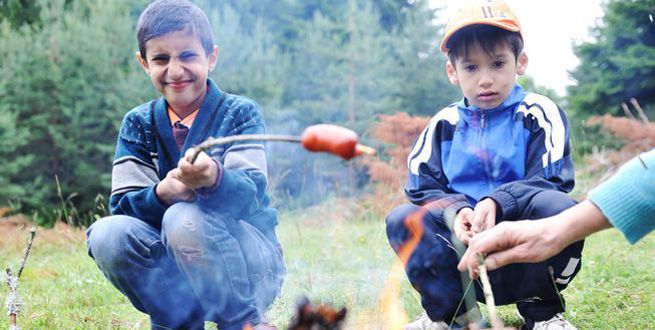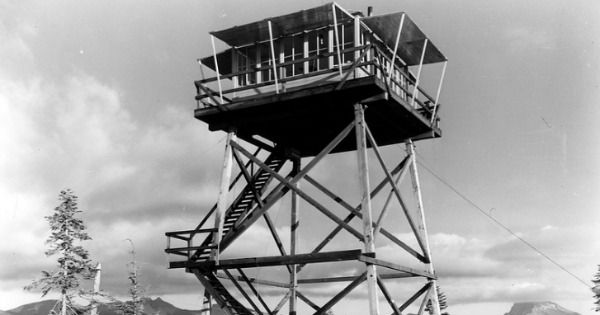There’s no argument that one of the largest and most celebrated youth organizations in the United States, Boy Scouts of America, has positively impacted the lives of millions of young men while churning out bold-face names ranging from Steven Spielberg to Gerald Ford to Neil Armstrong. The core virtues spelled out in Scout Law — kindness, courtesy, bravery, loyalty — are qualities that every American, young and old, should aspire to, and the conservation work performed by the Boy Scouts is beyond invaluable.
But while Boy Scouts of America has the whole starting-a-fire-without-a-match thing down pat, the National Council has struggled in the past to bid adieu to its longstanding policies that prohibit atheists, agnostics and “open or avowed homosexuals” from entering the ranks as members or leaders.
In the past, BSA’s membership policies have proven to be controversial, particularly the exclusion of gay members. In July 2012, 12 years after the Boy Scouts won a Supreme Court case that thrust the issue into the public spotlight, the BSA reaffirmed its ban on openly gay members.
Progress Begins, But Not Enough for Some
Months later, in January 2013, the organization said it would mull over the issue once again and announce a final decision in February (a nudge from President Obama came shortly thereafter). Finally, in May 2013, the BSA formally announced an end to its ban on gay Scouts.
On Oct. 11, 2017, BSA leaders announced they would start allowing girls to join their ranks. In an official statement, they said they made their decision after fielding requests for years from families who wanted their daughters to be able to join the scouting organization:
«The organization evaluated the results of numerous research efforts, gaining input from current members and leaders, as well as parents and girls who’ve never been involved in scouting — to understand how to offer families an important additional choice in meeting the character development needs of all their children.»
Although these changes show a trend toward inclusivity, in recent years, the BSA has lost countless numbers of large private and public backers (Pew Charitable Trusts, Chase Bank, Intel, the UPS Foundation, etc.) due to conflicts with nondiscrimination policies and has been met with opposition or defiance by numerous local troops and councils. Some highly decorated Eagle Scouts have returned their badges in protest, and a 2013 petition to strip the California chapter of BSA of its tax-exempt status garnered more than 10,000 signatures.
Alternatives to Boy Scouts of America
Many parents have wondered what other scouting options are out there for their children. In a country dominated by the BSA, it’s relatively slim pickings, but there are a small handful of all-inclusive youth organizations with membership policies that welcome children and adults of all (or no) religions and sexual orientations. Some have been around for years while others have formed more recently in direct response to BSA’s discriminatory membership policies. Below, you’ll find details on four notable ones.
It’s worth noting that Girl Scouts USA — though not a coed organization like the groups mentioned below — is a much different creature from the Boy Scouts and has never held restrictions against LGBT members. In fact, last year Girl Scouts Colorado welcomed a 7-year-old transgender girl named Bobby Montoya to a local chapter. The organization explained the decision in a statement: “Girl Scouts is an inclusive organization and we accept all girls in kindergarten through 12th grade as members. If a child identifies as a girl and the child’s family presents her as a girl, Girl Scouts of Colorado welcomes her as a Girl Scout.”
Did we leave out an inclusive scouting or youth organization that you or your children are involved with? Please tell us about it in the comments.
Navigators USA
Navigators USA
Founded: 2003
Headquarters: Brooklyn, New York
Navigators USA Moral Compass:
“As a Navigator I promise to do my best to create a world free of prejudice and ignorance. To treat people of every race, creed, lifestyle and ability with dignity and respect. To strengthen my body and improve my mind to reach my full potential. To protect our planet and preserve our freedom.”
Now there’s a moral compass that we can get behind. Founded as a direct breakaway from the Boy Scouts of America by leaders of East Harlem’s Boy Scout Troop 103 in response to the BSA’s exclusionary policies, Navigators USA was created, in the words of the organization, to “provide a scouting experience for [all children] who either can’t or don’t want to join the existing scouting organization in their local community.”
Following the split with BSA, the former sponsor of Boy Scout Troop 103, Unitarian Church of All Souls, felt it was vital to “maintain the best parts of the scouting experience and retain the close relationships and bonding with the youth participants that had developed over the years.” Thus, under the leadership of former Scoutmaster Robin Bossert, Navigators USA was born.
Since its formation a decade ago, Navigators USA has grown slowly but steadily and spread from NYC across the country with more than 40 chapters in cities such as Baton Rouge, St. Louis, Fresno, and Nashville. The organization is split into two programs, each with a series of levels dependent on age or achievement. Junior Navigators aims to help kids ages 7 through 10 “build camaraderie, character and a basic understanding of the world and cultures around them” through activities like crafting, games and museum excursions. Senior Navigators, for 11- through 18-year-olds, is where more typically “scout-y” activities — first aid, ecology, survival skills, etc. — come into play, along with community service and other activities meant to boost self-esteem and independence.
Navigators USA has one notable cheerleader who also happens to be an Eagle Scout: The billionaire boss of New York City, Michael Bloomberg. While accepting a humanitarian award at a 2011 event, Bloomberg told the crowd that “by belonging to the Navigators, [children] get the guidance and adult-supervised adventure that only scouting can offer — in an atmosphere free of any stigma about sexual orientation. And as a proud Eagle Scout who has publicly told the Boy Scouts to change their wrong-headed anti-gay policy, I say ‘Amen’ to that!”
Camp Fire (formerly Camp Fire USA)
Camp Fire
Founded: 1910
Headquarters: Kansas City, Missouri
Camp Fire Law:
«Seek beauty, give service, and knowledge pursue. Be trustworthy ever, in all that you do. Hold fast onto health, and your work glorify. And you will be happy, in the law of Camp Fire.»
The oldest and by far the largest (current membership is around 750,000) all-inclusive scouting organization, Camp Fire wasn’t always proudly coed. Up until 1975 when it morphed into Camp Fire Girls and Boys, the bead-happy, WoHeLo-centric (“Work, Health and Love”) youth organization had served as sister organization to Boy Scouts of America and was known as Camp Fire Girls of America. And, yes, as the nation’s first nonsectarian and multicultural organization for girls, Camp Fire (slightly) predates Girl Scouts of the USA.
Several decades and almost as many name changes later, Camp Fire still wears its nondiscriminatory badge proudly on its red (or blue) vest. Reads the organization’s policy on inclusion: “Camp Fire works to realize the dignity and worth of each individual and to eliminate human barriers based on all assumptions which prejudge individuals. Our program standards are designed and implemented to reduce sexual, racial, and cultural stereotypes and to foster positive intercultural relationships. In Camp Fire, everyone is welcome.”
With 72 councils nationwide, Camp Fire currently offers three broad programs: Out-of-School-Time, Teen Service and Leadership, and Environmental and Camp, which includes an array of outdoor programs ranging from resident camp to environmental education programs. And although its alumni list can’t quite complete with that of Girl Scouts USA, Camp Fire’s rather eclectic alumnae include Beverly Cleary, Dianne Feinstein, Lady Bird Johnson, Elizabeth Warren, Christy Brinkley and Madonna.
SpiralScouts International
Spiral Scouts International
Founded: 1999
Headquarters: North Carolina
SpiralScouts Oath:
“A SpiralScout shall: Respect all living things; be kind and courteous; be honorable; be mindful of his/her words; seek out knowledge in all forms; recognize the beauty in all of creation; offer assistance to others; value honesty and truth; honor personal commitments; and respect the Divine in all things.”
True to its neo-pagan roots, the celebration and conservation of Mother Earth is central to this dogma-free scouting organization that revolves around “[children] of all faiths working, learning and growing together.”
Created as a decidedly more progressive and accepting alternative to mainstream scouting organizations, SpiralScouts is an offshoot of the Aquarian Tabernacle Church, a Wiccan community based in Index, Wash.—a tiny outpost in the Cascade foothills that’s best known for a chainsaw-carved Bigfoot statue that stands next to a roadside espresso shack (yes, seriously). Although it has garnered the reputation as being a “pagan Sunday school” in some circles, SpiralScouts strives to be open to everyone and is rather traditional in both concept and hierarchy aside from the fact that each troop, referred to as a “Circle” or a smaller “Hearth,” is lead by both a male and female adult. Age divisions include RainDrops (ages 3 through 5), FireFlies (ages 6 through 8), SpiralScouts (ages 9 through 13) and Pathfinders (ages 14 though 18).
So what exactly do SpiralScouts do? Let’s just say activities don’t involve tarot cards, athames or making pentagrams out of Popsicle sticks and yarn. “We make crafts, sing songs, teach woodland lore, participate in service projects, explore cultures outside of our own, celebrate the Earth, teach good citizenship, go camping and hiking, explore mythologies, take on personal challenges, put on plays, participate in community events, earn badges, and grow and learn together,” explains the organization website.
Baden-Powell Service Association
Baden Powell Service Association
Founded: 2006
Headquarters: Washington, Missouri
Scout Promise:
“On my honor, I promise to do my best, to do my duty to God and my country, to help other people at all times and to obey the Scout Law.”
The Baden-Powell Service Association — not to be confused with the U.K.’s nonaffiliated Baden-Powell Scouts’ Association — is a traditional, back-to-basics scouting organization with a refreshingly non-antiquated membership policy: “BPSA offers a choice for those with curiosity, energy and independence of spirit. We are committed to providing an appropriate alternative and community-oriented scouting experience. BPSA welcomes everyone, regardless of race, gender, sexual orientation, religion (or no-religion) or other differentiating factors. Our mission is to provide a positive learning environment within the context of democratic participation and social justice. We foster the development of scouts in an environment of mutual respect and cooperation.”
Founded by David Atchley, a former Eagle Scout and Cub Scout leader who found himself at odds with the BSA’s noninclusive policies, the volunteer-run BPSA revolves around the fundamental principles and practices established by Robert Baden-Powell, the granddaddy of scouting who birthed the entire movement with the publication of 1908’s “Scouting For Boys: A Handbook for Instruction in Good Citizenship.”
So what qualifies the public service- and outdoor skills-centric BPSA as a “traditional” scouting organization? The BPSA website sums it up: “Traditional scouting is not historical re-enactment, but for the most part an attempt to present scouting as the game that was played prior to the 1960s; and following principles and practices laid down by scouting’s founder, Robert Baden-Powell. Our aim is to promote good citizenship, discipline, self-reliance, loyalty and useful skills.”
The BPSA is organized into four program levels: Otter (ages 5 through 7), Timberwolf (ages 8 through 11), Pathfinders (ages 12 through 17) and a senior branch for young adults over the age of 17 known as Rovers. Currently, there are nearly 20 BPSA groups spread across the country in cities such as Ann Arbor, Michigan; Albuquerque, Brooklyn, St. Louis, and Portland, Oregon.





